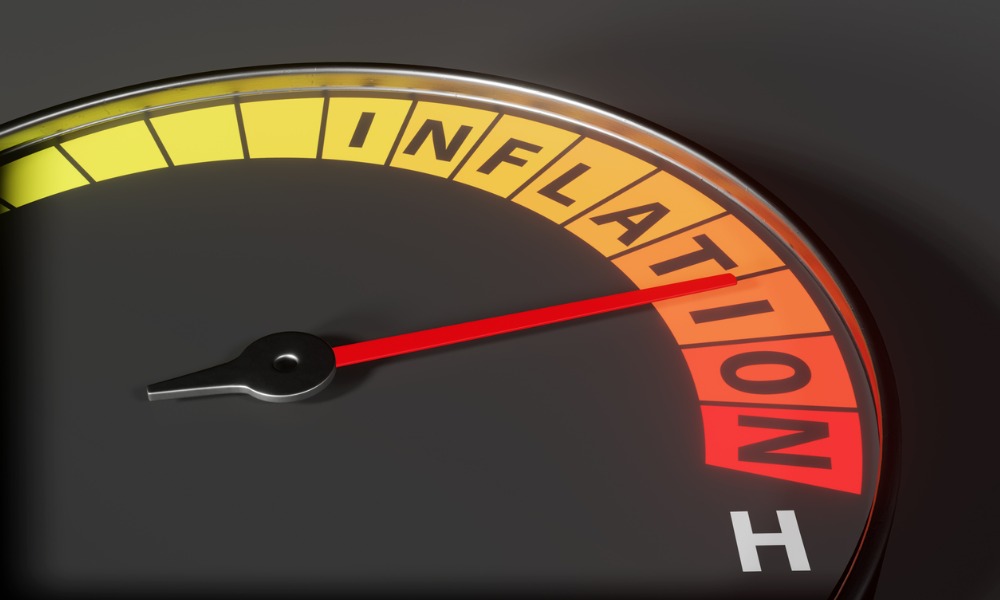Economists weigh in

A continued downward trend in the consumer price index (CPI) in July should be enough to “quell concerns” about sticky inflation pressures in Canada after a couple of upside surprises in recent months, according to a note by Royal Bank of Canada (RBC) economists Claire Fan and Abbey Xu.
Canada’s inflation rate slowed to a yearly pace of 2.5% in July, its lowest since 2021. That marked an “unequivocally weak” reading, “with slowing evident among all core CPI measures,” Fan and Xu wrote. “The scope of price pressures also continued to normalize – the diffusion index says the breadth of inflation in Canada is looking similar to the pre-pandemic norm in 2019.
“That’s good news for the Bank of Canada (BoC), which is actively turning its focus onto a weakening economic backdrop and the disinflationary pressures that could stem from that moving forward. The hurdle for more BoC cuts this year is low and we continue to look for another 25-basis-point cut at their next meeting in September.”
Mortgage and rental inflation begin to slow
According to the numbers, headline inflation edged down from 2.7% in the prior month, with a large chunk of price growth caused by mortgage interest costs.
“MIC [mortgage interest cost] inflation in July was still high, up over 20% from a year ago. Excluding that, headline inflation in Canada has been trending around the 2% target since January this year,” Fan and Xu noted.
Aside from the slowing mortgage prices, a deceleration in rental prices has also been seen. RBC’s report stated that rent CPI in July was still elevated at 8.5% above last year but has shown signs of easing up, albeit slowly.
“Meanwhile, [the] sluggish resale market performance is keeping a lid on inflation for owned home expenses, which remained negative on a yearly basis,” the report noted.
Food, energy prices increase slightly
Meanwhile, the latest inflation figures showed a slight movement in the prices of food and fuel/energy. Year-over-year inflation for food is pegged at 2.7% while energy inflation recorded a 0.4% increase.
“Gasoline prices were slightly higher than both last month and July a year ago. That in turn means the moderation in headline CPI came from everything else – core ex-food and energy CPI dropped to 2.7% year-over-year in July from 2.9%,” RBC said.
It added: “The “supercore” CPI measure, i.e., BoC’s trim services ex-shelter index grew at a similarly slow pace, up 0.1% from June to leave the three-month annualized reading at 3%, down from 3.3% in June.”
On the other hand, the RBC economists cautioned about the possible “smaller than expected seasonal upswing” in airfare and travel tours in July leaving prices for both dipping below levels a year ago. Furthermore, the report noted an improved auto inventory as supply chain knots continued to untie, leading to a persistent slowing in auto inflation.
“Prices for new cars were about 1% above last year and prices for used cars dropped to 6% below,” the report stated.
What are your thoughts about this story? Leave a comment below.



